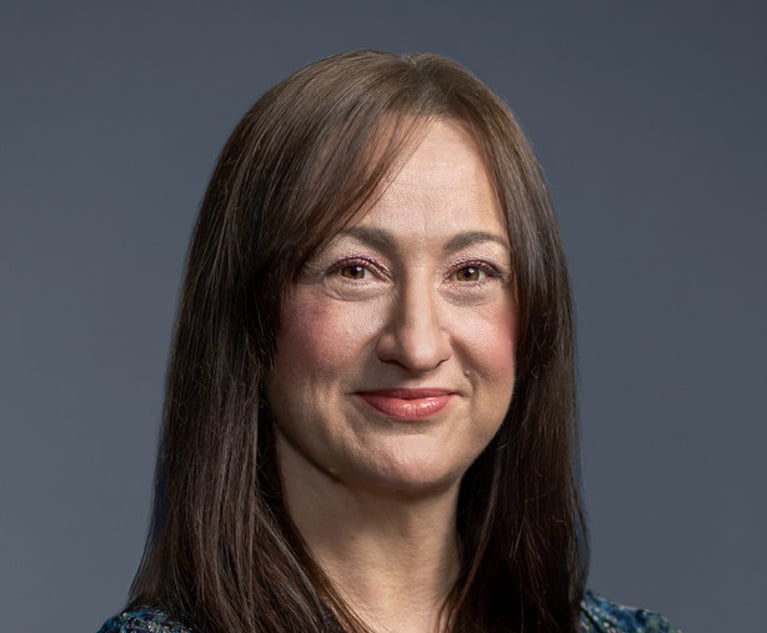UK top 50 law firms endure gloom to post best growth figures since 2008
The UK's top law firms have endured turbulent market conditions to achieve their best growth performance since 2008 with the top 50 expanding its revenues by 3.6% over the last financial year. Legal Week's 2010-11 results show the UK top 50 increased its revenues from £11.89bn to £12.33bn – returning income across the group to almost exactly 2009 levels. The average revenue growth of top 50 law firms was 5.3%.
July 20, 2011 at 07:03 PM
5 minute read
UK top 50 results 2011: leading law firms grind out growth in tough trading as revenues reach £12.33bn
The UK's top law firms have endured turbulent market conditions to achieve their best growth performance since 2008 with the top 50 expanding its revenues by 3.6% over the last financial year.
Legal Week's 2010-11 results show the UK top 50 increased its revenues from £11.89bn to £12.33bn – returning income across the group to almost exactly 2009 levels. The average revenue growth of top 50 law firms was 5.3%.
The performance was matched by a modest increase in profitability, with the group as a whole seeing profits per equity partner (PEP) rising 4.4%. The result is a contrast to 2010 when the UK's largest law firms achieved an 8.8% increase in PEP despite falling income due to widespread redundancies and deep cost-cutting programmes.
The results will be viewed as a respectable outcome by the UK's leading law firms, given the sluggish economic recovery and the continued dearth of transactional activity.
The magic circle, however, lagged the top 50 as a whole for the second consecutive year, though the group managed to increase revenue by 2.2% to edge back over the £5bn mark. The expansion came largely on the back of 6.7% growth at Allen & Overy (A&O), leaving London's 'big four' tightly grouped in revenue terms.
A&O managing partner Wim Dejonghe commented: "Across the top 50 the markets are still patchy and the pressure is on, both in terms of competing for deals themselves and on pricing. [But] we have made considerable investments throughout the year which will begin to pay off in the coming years."
Clifford Chance managing partner David Childs told Legal Week: "It was very much a two-speed year where we saw a striking development in growth markets while the developed economies were much slower. Asia revenues grew by 16% and the Middle East by 17%. That is why we are continuing to invest in those markets."
A jostling pack
Although the City's legal elite put in comparable performances, there were widely diverging fortunes at chasing pack and mid-tier London practices.
While the closest rivals to the magic circle such as Herbert Smith and Ashurst were in an effective holding pattern, with growth tracking inflation in 2010-11, the UK-based profit centre of Hogan Lovells managed its third successive year of above-trend performance to see revenues grow sharply to £582m, while profits lifted to £740,000.
Other strong performers in the City included Berwin Leighton Paisner and Stephenson Harwood, which hiked income by 19.9% and 16.4% respectively, while profits rose well above trend at both firms. SJ Berwin also secured what will be regarded as a crucial rebound in profits and solid growth after its bottom line was savaged in the two previous years.
At the other end of the spectrum, the UK-based profit centre of SNR Denton saw one of the sharpest revenue falls, of 9.4%, while its PEP fell to the lowest level in the top 50.
As expected, leading insurance and shipping law firms continued their three-year run of ambitious expansion, with the group averaging revenue and PEP growth of more than 10% (see page 10). Large national and regional firms managed a modest revival after a lacklustre two years, driven in part by a group of ambitious firm players operating in the £60m-£120m revenue class. Standout performers in this group were Wragge & Co, Gateley and DWF.
The global view
Despite evidence of the continued resilience of the UK legal market, there will be disquiet among the most ambitious firms that the profits gap has widened between the two global legal power blocks of the US and UK. The top 100 US law firms achieved an 8.4% hike in PEP in 2010 to average $1.37m (£856,000), well above the £535,500 seen this year in the UK top 50.
City observers are also watching the rash of multi-profit centre mergers that have recently gone live to gauge their impact on the evolving cross-border market. Judged on a group basis, Hogan Lovells, DLA Piper and Norton Rose appear set to become more imposing players on the global legal stage.
DLA Piper co-chief executive Nigel Knowles said: "It's going to remain tough out there for a lot of firms that have nothing to differentiate themselves from the competition. Firms need to be either among the global elite or be a global business, otherwise they need to find a niche."
With little prospect of a rapid return to strong trading conditions, many expect more consolidation and expansion in key emerging markets as leading UK law firms strap in for a low-growth environment for several years.
Hogan Lovells co-chief executive David Harris said: "The market has been challenging, no doubt, but we are seeing real opportunities and activity and are making good progress across our practice… We have done a massive amount in the last 12 months."
For more reflections on 2010-11 from UK law firm leaders, see Continued volatility and more mergers – senior lawyers see a hard road ahead.
This content has been archived. It is available through our partners, LexisNexis® and Bloomberg Law.
To view this content, please continue to their sites.
Not a Lexis Subscriber?
Subscribe Now
Not a Bloomberg Law Subscriber?
Subscribe Now
NOT FOR REPRINT
© 2025 ALM Global, LLC, All Rights Reserved. Request academic re-use from www.copyright.com. All other uses, submit a request to [email protected]. For more information visit Asset & Logo Licensing.
You Might Like
View All
MoFo Launches in Amsterdam: Exclusive Interview with Global Chair Eric McCrath
2 minute read
Clifford Chance Boosts Private Credit Offering With Mayer Brown Partner Duo
2 minute read

Ex-Mayer Brown Corporate Lawyer Leads Race for German Chancellor in Snap Election
4 minute readTrending Stories
- 1Fenwick and Baker & Hostetler Add DC Partners, as Venable and Brownstein Hire Policy Advisers
- 2H&R Block Accused of Negligence in Data Breach Suit
- 3Apple Disputes 'Efforts to Manufacture' Imaging Sensor Claims Against iPhone 15 Technology
- 4Following Treasury Hack, Do Federal Cybersecurity Standards Need an Update?
- 5Former Capital One Deputy GC Takes Legal Reins of AIG Spinoff
Who Got The Work
Michael G. Bongiorno, Andrew Scott Dulberg and Elizabeth E. Driscoll from Wilmer Cutler Pickering Hale and Dorr have stepped in to represent Symbotic Inc., an A.I.-enabled technology platform that focuses on increasing supply chain efficiency, and other defendants in a pending shareholder derivative lawsuit. The case, filed Oct. 2 in Massachusetts District Court by the Brown Law Firm on behalf of Stephen Austen, accuses certain officers and directors of misleading investors in regard to Symbotic's potential for margin growth by failing to disclose that the company was not equipped to timely deploy its systems or manage expenses through project delays. The case, assigned to U.S. District Judge Nathaniel M. Gorton, is 1:24-cv-12522, Austen v. Cohen et al.
Who Got The Work
Edmund Polubinski and Marie Killmond of Davis Polk & Wardwell have entered appearances for data platform software development company MongoDB and other defendants in a pending shareholder derivative lawsuit. The action, filed Oct. 7 in New York Southern District Court by the Brown Law Firm, accuses the company's directors and/or officers of falsely expressing confidence in the company’s restructuring of its sales incentive plan and downplaying the severity of decreases in its upfront commitments. The case is 1:24-cv-07594, Roy v. Ittycheria et al.
Who Got The Work
Amy O. Bruchs and Kurt F. Ellison of Michael Best & Friedrich have entered appearances for Epic Systems Corp. in a pending employment discrimination lawsuit. The suit was filed Sept. 7 in Wisconsin Western District Court by Levine Eisberner LLC and Siri & Glimstad on behalf of a project manager who claims that he was wrongfully terminated after applying for a religious exemption to the defendant's COVID-19 vaccine mandate. The case, assigned to U.S. Magistrate Judge Anita Marie Boor, is 3:24-cv-00630, Secker, Nathan v. Epic Systems Corporation.
Who Got The Work
David X. Sullivan, Thomas J. Finn and Gregory A. Hall from McCarter & English have entered appearances for Sunrun Installation Services in a pending civil rights lawsuit. The complaint was filed Sept. 4 in Connecticut District Court by attorney Robert M. Berke on behalf of former employee George Edward Steins, who was arrested and charged with employing an unregistered home improvement salesperson. The complaint alleges that had Sunrun informed the Connecticut Department of Consumer Protection that the plaintiff's employment had ended in 2017 and that he no longer held Sunrun's home improvement contractor license, he would not have been hit with charges, which were dismissed in May 2024. The case, assigned to U.S. District Judge Jeffrey A. Meyer, is 3:24-cv-01423, Steins v. Sunrun, Inc. et al.
Who Got The Work
Greenberg Traurig shareholder Joshua L. Raskin has entered an appearance for boohoo.com UK Ltd. in a pending patent infringement lawsuit. The suit, filed Sept. 3 in Texas Eastern District Court by Rozier Hardt McDonough on behalf of Alto Dynamics, asserts five patents related to an online shopping platform. The case, assigned to U.S. District Judge Rodney Gilstrap, is 2:24-cv-00719, Alto Dynamics, LLC v. boohoo.com UK Limited.
Featured Firms
Law Offices of Gary Martin Hays & Associates, P.C.
(470) 294-1674
Law Offices of Mark E. Salomone
(857) 444-6468
Smith & Hassler
(713) 739-1250







